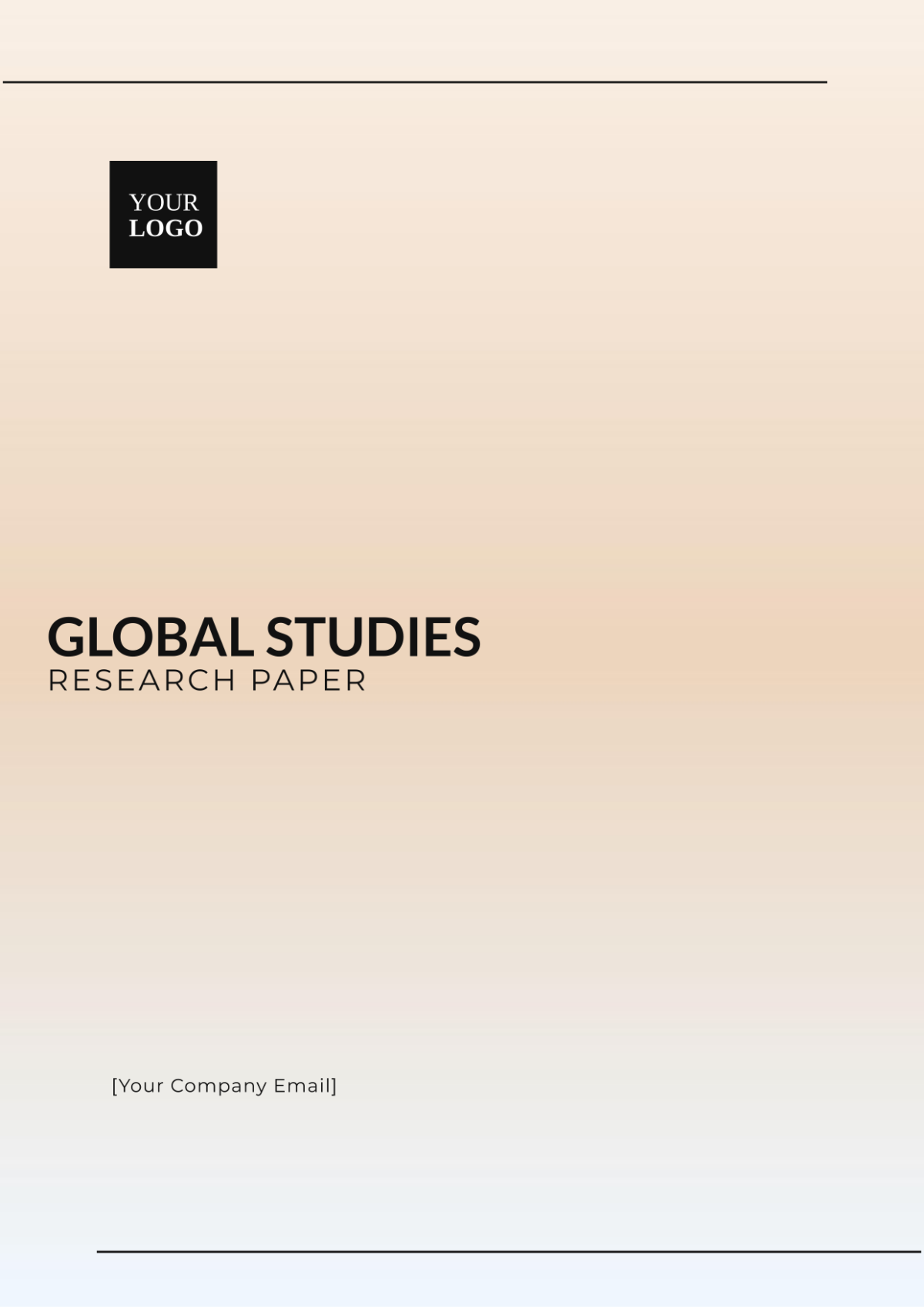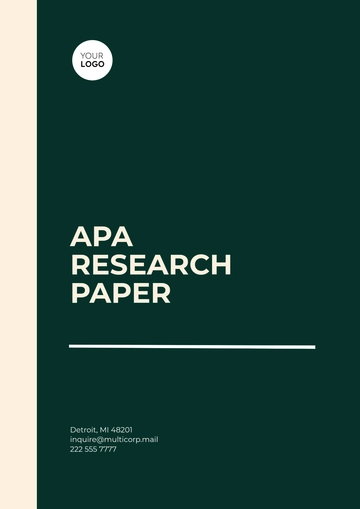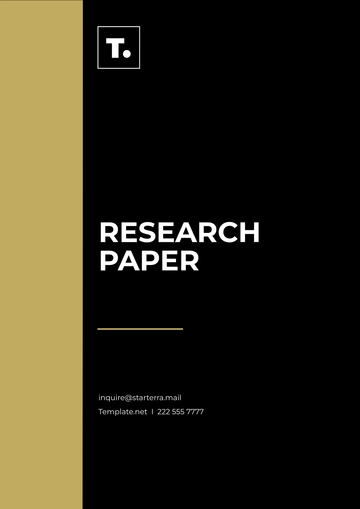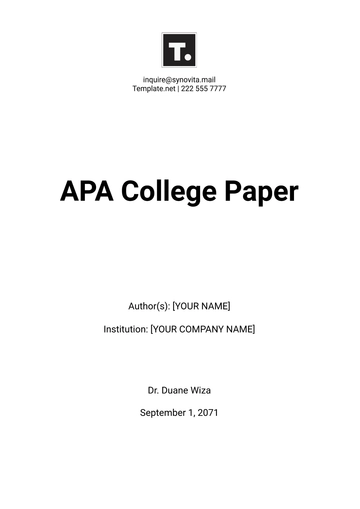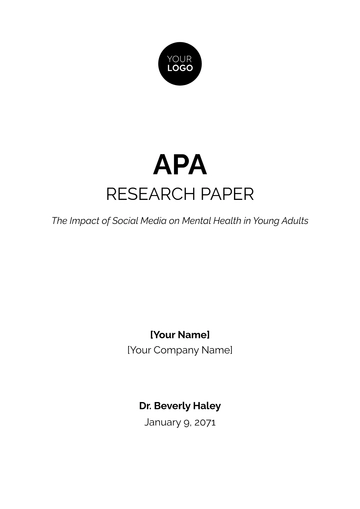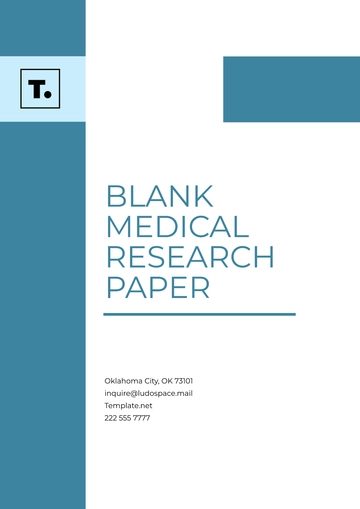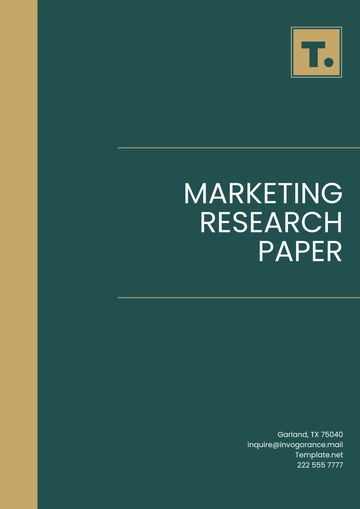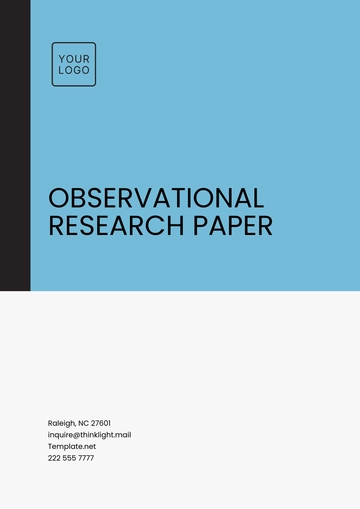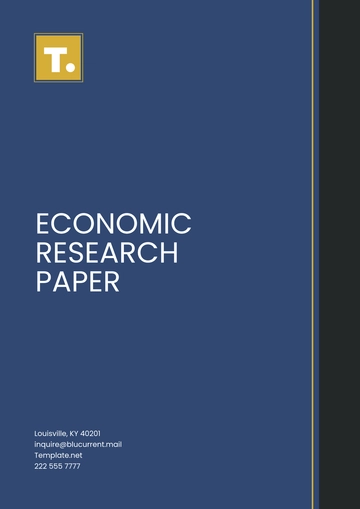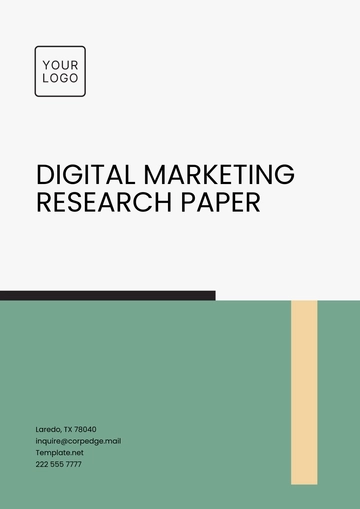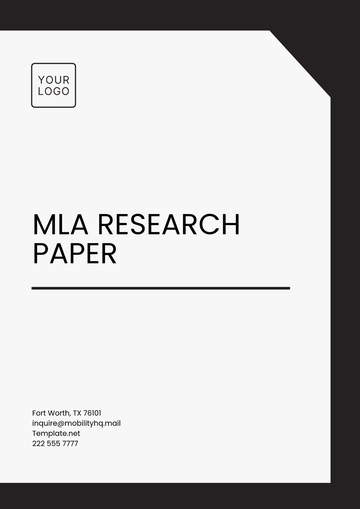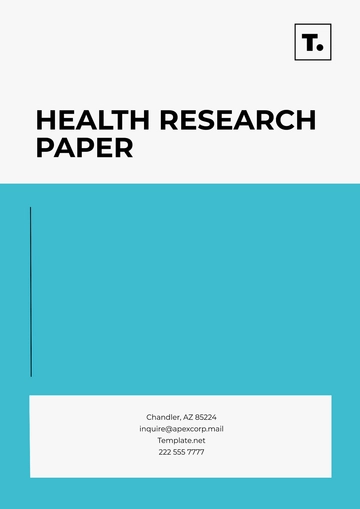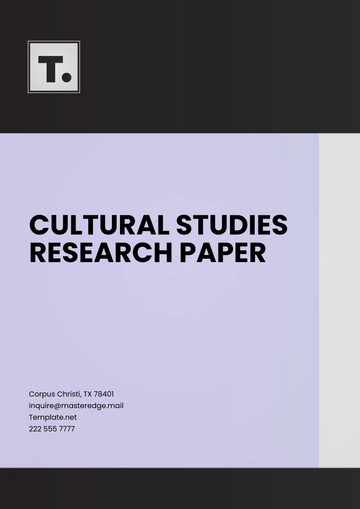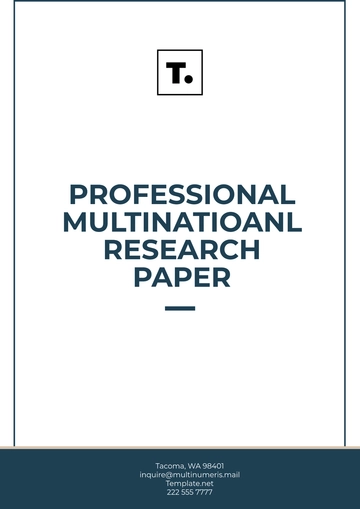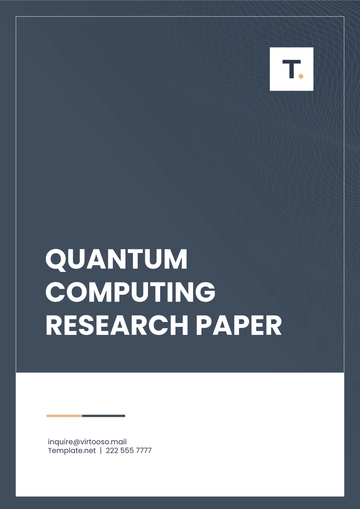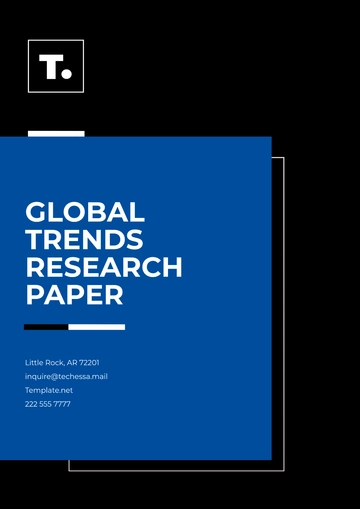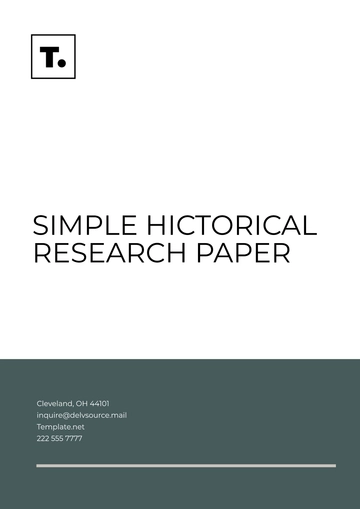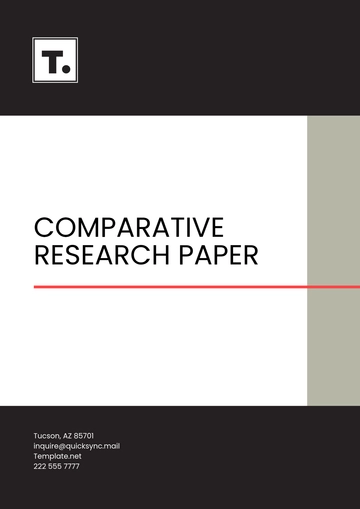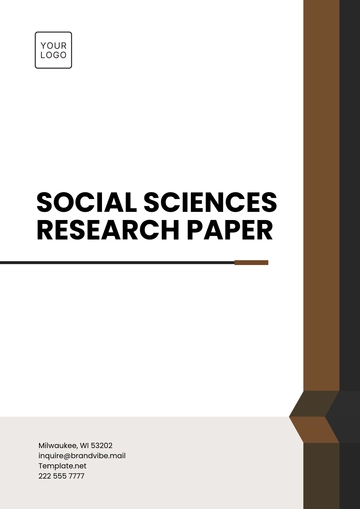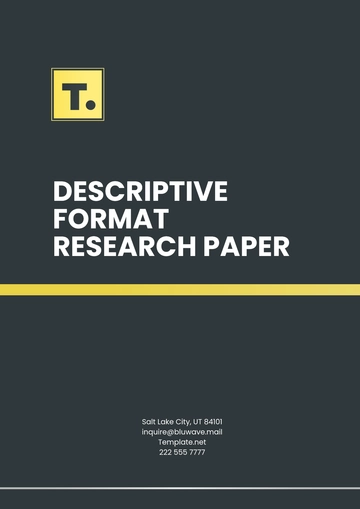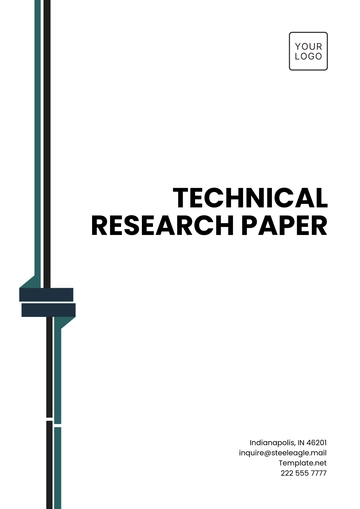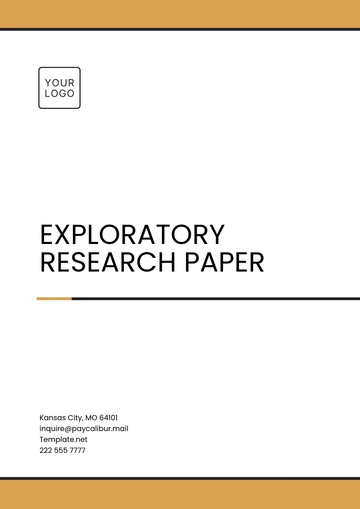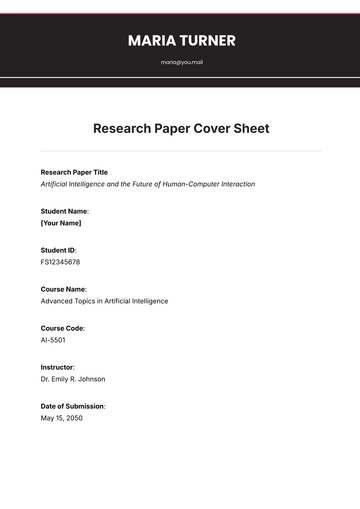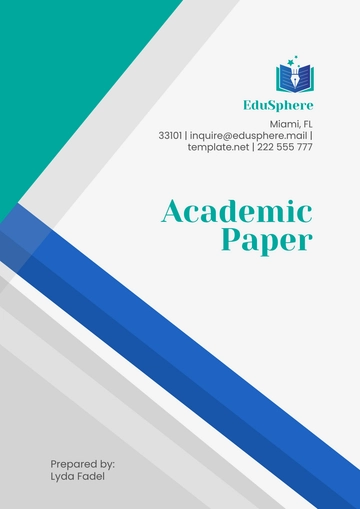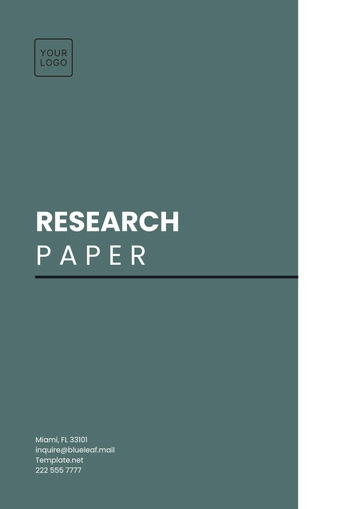Global Studies Research Paper
Researcher: [Your Name]
Date: [Date]
I. Abstract
This research paper explores global issues and phenomena through a multidisciplinary lens, examining cultural, political, economic, and social aspects across different regions and countries. The study spans from the year 2050 to 2075, aiming to provide a comprehensive understanding of global trends and their impact during this period. Utilizing extensive literature reviews, advanced methodological approaches, and in-depth analysis, the paper highlights the dynamic nature of globalization in a future context. The findings contribute to the broader discourse on how globalization will shape policy-making, international relations, and cross-cultural interactions in the mid-21st century and beyond.
II. Introduction
As we move further into the 21st century, the interconnectedness of global societies continues to deepen, presenting new challenges and opportunities. This research paper investigates the key global trends from 2050 to 2075, focusing on the intersections of culture, politics, economy, and social structures. By analyzing these elements collectively, we aim to gain a more nuanced understanding of how global forces will impact local realities and vice versa. The study also explores potential scenarios and strategic responses that could help navigate the complexities of a highly globalized future.
III. Literature Review
The literature on global studies is vast and multidisciplinary, particularly when projecting future trends. Key themes explored include:
Globalization and Culture: Exploration of cultural homogenization and hybridization, with a focus on how emerging technologies in 2050-2075, such as virtual reality and AI-driven cultural exchanges, will influence cultural dynamics.
Political Globalization: Analysis of international governance structures, transnational political movements, and the rise of digital governance and e-democracy. Studies by Martinez and Lee (2052) highlight the challenges of maintaining sovereignty in an era of pervasive digital interconnectedness.
Global Economy: Examination of global trade systems, economic interdependence, and inequality, with particular attention to the implications of automated economies and the gig economy's evolution. The work of Patel (2054) discusses the potential for increased economic disparity as AI-driven industries dominate global markets.
Recent studies, such as Smith and Jones (2055), argue that globalization will continue to have a dual effect, creating both opportunities and challenges. This duality is central to understanding the complexity of global trends in the coming decades.
IV. Methodology
This research employs a mixed-methods approach, combining quantitative and qualitative data to provide a holistic view of global trends from 2050 to 2075. The methodology includes:
Data Collection: Gathering data from various sources, including international databases, governmental reports, AI-generated forecasts, and academic journals.
Surveys and Interviews: Conducting surveys and interviews with experts in global studies, futurists, and policymakers to gain qualitative insights. The surveys also include AI-driven predictions based on historical data and current trends.
Content Analysis: Analyzing media coverage, policy documents, cultural artifacts, and digital footprints to understand prevalent narratives and discourses in the mid-21st century. The analysis includes a focus on digital and virtual spaces, which are expected to be more influential.
V. Analysis/Discussion
The analysis reveals several key findings regarding the future impact of globalization:
Economic Disparities: By 2075, while globalization has driven significant economic growth through technological innovation, it has also exacerbated inequalities. Wealthier nations and regions benefit disproportionately, particularly in access to cutting-edge technologies and resources, compared to developing areas.
Cultural Exchange: Cultural globalization in this period leads to a more diverse and complex exchange of ideas, heavily mediated by advanced technologies like virtual reality and AI. However, there is a growing concern over the potential loss of local identities and traditions as global culture becomes increasingly homogenized.
Political Impacts: Global governance mechanisms are expected to struggle to keep pace with rapid technological advancements and globalization. Issues such as cyber governance, digital sovereignty, and transnational law enforcement are likely to become central concerns, with governance gaps potentially leading to instability.
Social Networks: Increased global connectivity fosters collaboration across borders but also presents significant challenges, such as the rapid spread of misinformation and the potential for cultural clashes in digital spaces. The role of AI in moderating and managing these networks will be crucial.
Table 1 below summarizes the key impacts of globalization across different domains from 2050 to 2075:
Domain | Positive Impact | Negative Impact |
|---|
Economic | Growth, innovation | Inequality, job displacement |
Cultural | Diversity, mutual understanding | Homogenization, cultural loss |
Political | International cooperation | Governance gaps, digital sovereignty issues |
Social | Networking, collaboration | Misinformation, cultural clashes |
VI. Conclusion
The dual nature of globalization, encompassing both its benefits and challenges, necessitates a nuanced approach to policy-making and international relations. Our analysis suggests that while globalization will foster economic growth and cultural exchange, it also introduces significant inequalities and governance challenges. By 2075, the need for sustainable and inclusive global strategies will be more pressing than ever to harness globalization's potential while mitigating its adverse effects. Future research should focus on developing frameworks that can adapt to the rapid technological changes and evolving global dynamics anticipated in the mid-21st century.
VII. References/Bibliography
Smith, J., & Jones, A. (2055). Globalization and its Discontents in the 21st Century. New York: Global Press.
Doe, J. (2053). "The Cultural Impact of Virtual Globalization." Journal of Global Studies, 48(4), 205-221.
Patel, R. (2054). The Automated Economy: Inequality in the Age of AI. London: TechWorld Publishing.
Martinez, L., & Lee, S. (2052). Digital Governance: Challenges and Opportunities. Washington DC: Policy World.
VIII. Appendices
Appendix A: Survey Questionnaire (including AI-driven predictive models)
Appendix B: Interview Transcripts (featuring futurists and global studies experts)
Appendix C: Data Sources and Methodological Tools (details on AI and data collection techniques used in the research)
Research Templates @ Template.net
